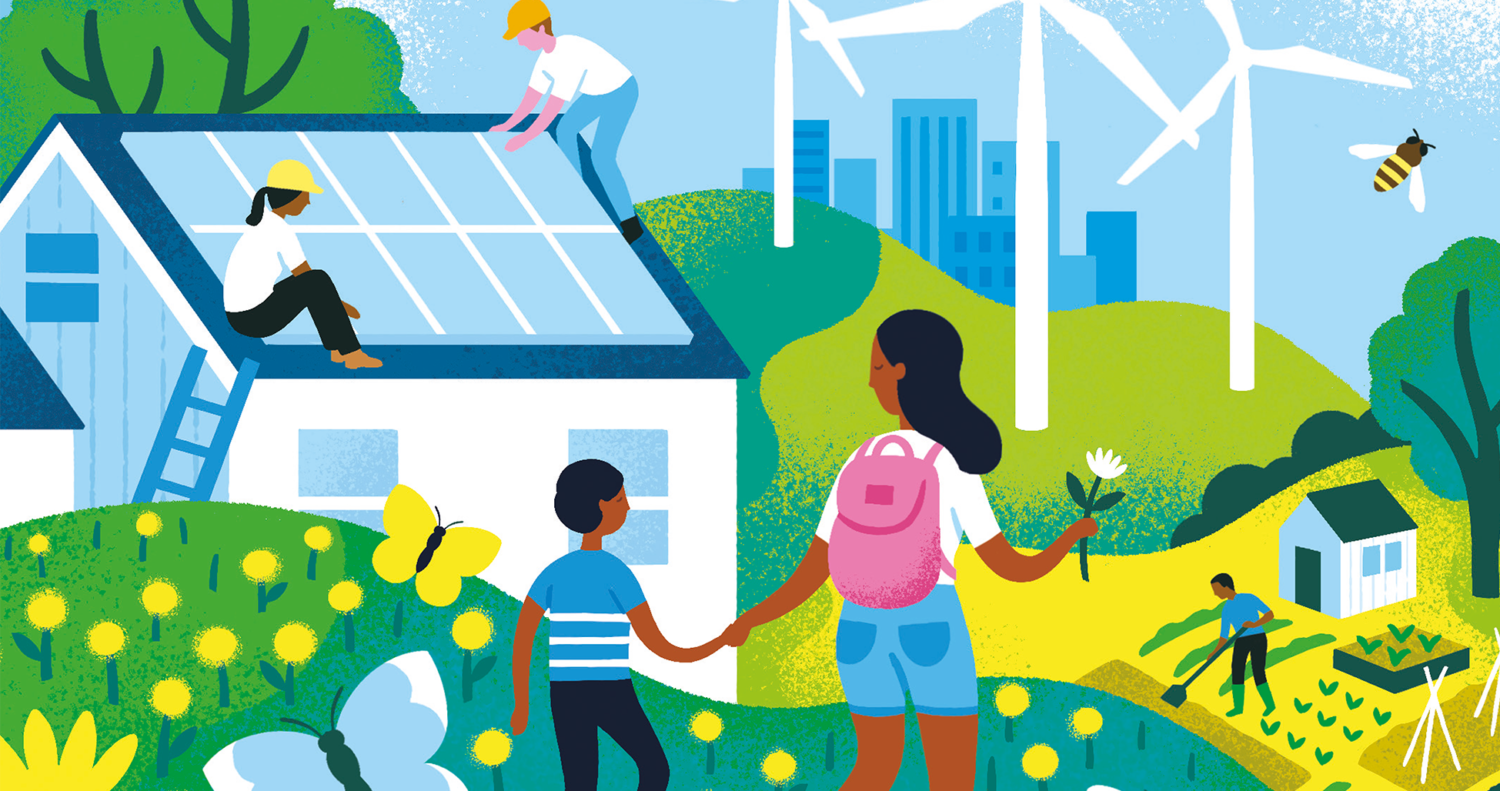The gloves are off
The climate change battle is one we can’t duck because of the disaster that confronts the world if we do not act. But it is also an opportunity to reimagine our world. The Labour party can and should seize this moment, writes Ed Miliband MP.
On climate change, we face the fight of our lives for the rest of our lives. This must be our fight because of the urgency of acting. Climate change is already real, here and it will hit the poorest people across the world hardest. It’s time to face up to what is already happening worldwide: extreme weather patterns, cyclones, droughts, floods, deadly fires, rising sea levels. Some will be hit harder than others but no country can be insulated from the effects. Scientists tell us that the severity and frequency of these events are directly linked to human-induced climate change. If we do not act they will get far worse and the World Bank estimates that as many as 140 million people could be displaced from their homes by 2050.
So climate action is an issue of social justice, not just for the planet but for people. It must be our fight because of this but also because our principles of economic and social justice are fundamental to winning it.
The demand for ‘truth telling’ from Extinction Rebellion activists and the climate school strikers is right and has been a wake-up call for politicians. Labour has got the message by getting unanimous support for a non-binding motion in favour of a climate emergency declaration. It makes the British parliament the first in the world to do this. But we cannot afford to leave climate change in an ‘environmental’ box. Instead, tackling the climate emergency must become the central foundation for our battle to make a fairer society.
The reason is that we need to build an enduring cross-class coalition, lasting for decades. It must unite people across the country and it must inspire other countries too. The only way to do so is to show people what is in front of our eyes: tackling climate change is also a route to tackling the enormous economic and social inequalities that divide and scar our country. This is a fact, but so far has not been central enough to the vision of those who care about this issue.
That is the inspiration and hope that the idea of the Green New Deal offers – an ambitious plan to solve the current environmental, economic and social crises in one. It envisages radically restructuring our economy and infrastructure to tackle climate change and biodiversity loss through decent work and greater ownership in green industries. It was an idea born more than a decade ago in the United Kingdom, now championed by Congresswoman Alexandria Ocasio-Cortez in the United States, and rightly taken up by Labour for a Green New Deal and Rebecca Long-Bailey from Labour’s front bench.
This green industrial revolution has the potential to transform lives, revive communities and reduce inequality across Britain. In order to help provide a blueprint for the types of economic and social transformations that need to take place, I have teamed up with the Institute for Public Policy Research for a cross-party, cross-sector, cross-generation commission. That commission will report later next year, but it is already clear there are profound opportunities to create jobs, make the green economy central to the industrial strategy of the future and rebalance the economy of our country.
As a priority, we need to retrofit and change the way we heat every building in this country and all our 27 million homes. Think of the hundreds of thousands of jobs this could create and the lower energy bills we could have for people as a result. We can only do it if the government gets with the programme and is willing to be bold. In the 1960s and 1970s we transitioned from town gas to natural gas, house by house, street by street. We need the same approach again. We must be frank and open that these kinds of transformative policies will require substantial investment but they are essential for the clean energy transition.
We need too to transform the way we travel, in particular taking 40 million petrol and diesel vehicles off our roads. That is an enormous enterprise, but again there are huge benefits if we do so in tackling the deadly killer that is air pollution. There is also a massive opportunity for our car industry in producing electric vehicles if we get in early. And there are jobs to be done transforming our towns and cities so that people can walk and cycle and get around by public transport.
There are also huge opportunities in the power sector, as we complete the low carbon transition and seek to develop new technologies like carbon capture and storage. We must also transform our land, reforesting and reclaiming peat lands. This too will provide important employment opportunities.
We should not deny that there will be challenges too. As we transition out of fossil fuels, there are huge issues that we will need to address. We know how bad it can be when transitions are not properly managed, as we saw with Tory pit closures. Only by ensuring a ‘just transition’, and making sure that affected workers get support, retraining and alternative employment, can we expect to bring people with us.
The same goes for the way we pay for this. As we make the transition, fairness of the burden must be an absolutely core part of the plan. That means we can’t rely so heavily on paying for the transition through energy bills, as in the past. There are different ways of doing this, but whether through taxation or borrowing, or a combination of the two, it must be socially just.
This is just the start of what is possible. The obstacles we face are not technical or statistical but about will, imagination and politics. Public opinion is moving in the right direction but the fight has only just begun to build the coalition we need. The climate change battle is one we can’t duck because of the disaster that confronts the world if we do not act. But it is also an opportunity to reimagine our society and indeed our world. There is no bigger issue for our time. The Labour party can and should seize this moment.
This article is part of a Fabian debate on Labour and the climate emergency. Read the other contributions here:
1. For the workers
Clare Hymer argues for decades in the global north, environmentalism has been framed as a white, middle-class preoccupation; this framing couldn’t be further from the truth.
2. Red and green values
A Labour government that is committed to restructuring and decarbonising our economy to tackle the climate emergency must put trade unions and workers at the heart of its approach, writes Nadia Whittome.
3. Winning over the voters
Commitments need to be followed by actions. So how will Labour find the policies that meet its ambitious carbon reduction targets and attract voters to the party too, asks Melanie Smallman.
4. Actions speak louder than words
When it comes to the climate emergency, actions speak louder than words. Sue Hayman MP, Judith Blake and Alex Sobel MP write about the steps that need to be taken by local authorities and parliament.
5. Seeking green solutions
Green issues are creating more concern than ever before with action needed across a number of fronts. We know the government must act now, but what should this look like in practice? Stephanie Hilborne, Alan Whitehead MP, Noga Levy-Rapoport and Farhana Yamin weigh in.

